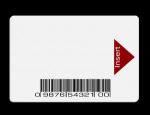
Photo by I Busca
Since private investors tend to cut costs by eliminating jobs, unions are against private investors getting involved with acquiring distressed banks.
The involvement of private investors would relieve the U.S. of their intervention in some of the failed banks earlier in this economic crisis. Warren Buffet recently made a statement that the U.S. “must address the massive amounts of monetary medicine that have been pumped into the financial system and now pose threats to the world’s largest economy and its currency.”
The federal deficit reached an all-time monthly high of $180.7 billion for the month of July 2009.



 Posted by gailcav
Posted by gailcav 









